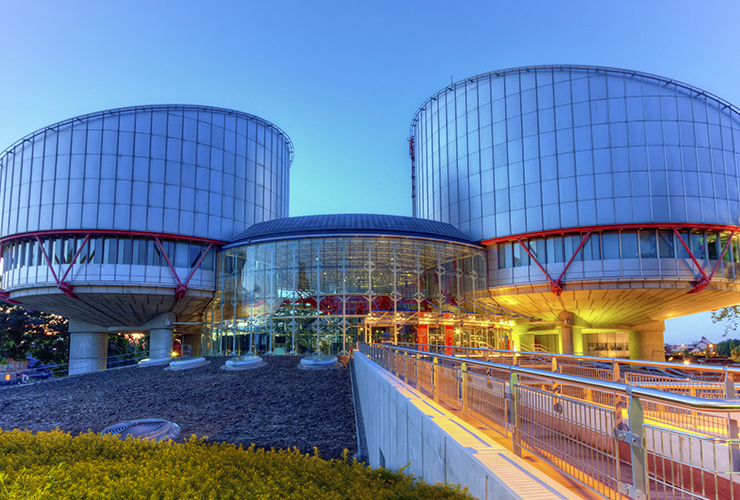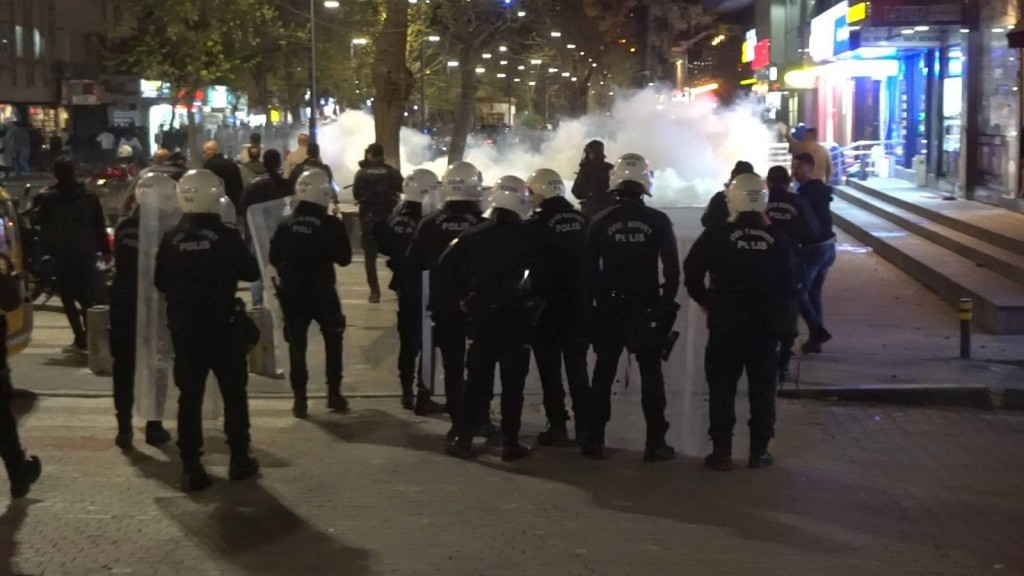The job of defending persecuted journalists in Turkey is a tough one. Over the last few years, hundreds of journalists have been detained and imprisoned as part of a widespread crackdown by the government on critical voices. Captured courts and pro-government judges mean the Turkish judicial system often offers little hope of a fair hearing.
For these journalists, when appeals have been exhausted in the Turkish courts, one final legal recourse can offer the hope of justice: the European Court of Human Rights (ECtHR). This Strasbourg-based institution hears allegations of rights violations by states against its citizens, including wrongful imprisonment and breaches of freedom of expression.
For lawyers taking such cases to the ECtHR, the procedure can be complex, time consuming and frustrating. Applications are subject to strict rules and verdicts often take months or even years to reach – during which time defendants may remain behind bars. All too often, those defending journalists also find themselves in the government’s cross hairs.
Few are more aware of these challenges than Veysel Ok, one of Turkey’s leading free speech and press freedom lawyers. He is the co-founder of the Media and Law Studies Association (MLSA), an Istanbul-based organization which provides free legal aid to journalists in Turkey who are facing surveillance, smear campaigns or legal harassment from authorities.
The non-profit organization was created by a group of journalists and lawyers in late 2017 in response to the crackdown on freedom of expression and independent media in Turkey that followed the July 2016 attempted coup.
Over the past two years, MLSA has taken up many of the biggest cases in Turkey regarding freedom of expression. During his career, Ok has acted as legal counsel in more than 400 press freedom trials. These cases have taken him all the way to the ECtHR in Strasbourg, where he has filed applications on behalf of 16 different journalists.
IPI spoke to Ok about the process for human rights lawyers taking up journalists cases at the ECtHR, the personal and professional challenges he’s faced, and the impact he’s seen Europe’s top human rights court have on Turkey over the past few years.
Landmark cases
First and foremost, he stressed, each of the cases filed at the ECtHR involves a difficult and lengthy judicial process. “The most important procedure for applying to the European Court of Human Rights is to exhaust domestic remedies in the country”, he explained. In general this means first pursuing all national avenues of appeal up to and including the Turkish Constitutional Court. “This means a long way and effort for applications”, he added.
Part of the lawyer’s role is then specifying the violation of fundamental rights and providing evidence. This, too, is a complex and time-consuming process. Often cases involve more than one alleged violation. When submitted to the Court, it usually takes several months at least for a decision to be made.
This was Ok’s experience in the landmark case of leading academic and journalist Mehmet Altan and his co-defendant Şahin Alpay, whom Ok represented as head lawyer at the ECtHR. Both had been handed life sentences in the wake of the coup attempt for “having links to terrorist groups” and “attempting to overthrow the government” – charges they categorically denied.
In reality, “both of these journalists were arrested because of their words and writings”, Ok said, noting their critical opinions about Turkish government authorities.
MLSA filed its case with the ECtHR in January 2017. Though the process was slow and the Court took more than a year to make its decision, justice was finally reached. “For both journalists, the Court ruled their detention was unlawful and their right to freedom of expression had been violated”, he said.
In a major victory for MLSA and for press freedom in Turkey more widely, both journalists were released from prison, although after several months of delay in the application of Court’s decision. The Court criticized the authorities for keeping the pair in pre-trial detention for so long and ordered Turkey to pay damages of €21,500 to each.
Lack of timely decisions
Despite this success, other cases have proven more challenging, Ok added. Due to an exceptional implementation by the Court since June 2017, journalists now may apply to the ECtHR after fulfilling the precondition of applying to the Constitutional Court without waiting for its ruling. After receiving no response from the Turkish Constitutional Court, MLSA was able to apply to the ECtHR on behalf of journalists Nedim Türfent and Deniz Yücel. Applications for both journalists are still being reviewed.
Türfent, a Kurdish journalist, has spent more than 1,400 days in prison since his arrest on May 12, 2016. In December 2017, he was sentenced to almost nine years in prison on terrorism charges for which prosecutors produced no credible evidence.
Yücel, a correspondent for the German newspaper WELT, was freed on bail but still faces up to 18 years in prison on charges of “inciting the public to racial hatred and enmity” and “spreading the propaganda of a terrorist organization”. Now in Germany, he is currently being tried in Turkey in absentia.
“Even though the applications were lodged a long time ago, we have not yet been able to obtain a result from these applications”, Ok said, pointing to one of the main challenges lawyers face when taking cases to the ECtHR.
“The biggest shortcoming of the court at the moment is that it is not able to make a timely decision in urgent cases”, he explained. “The Court should have a more effective and faster decision-making process in cases involving freedom of expression or the right to life.”
Positive impact outweighs challenges
Another major frustration for those defending journalists is the flaws of the Turkish legal system, he added. “The system is problematic and it takes years for appeals to progress. This means that journalists who are detained for their words or writings experience more victimization as a result of the delays in the application. This is the biggest obstacle to us lawyers.”
“In Turkey, this line of work is a dangerous one. Often those defending journalists find themselves in the cross hairs of the authorities,” Ok added. “From time to time, it’s lawyers themselves who are targeted by the government after a journalists’ application is made”, he said.
In September 2019, Ok was himself convicted of “insulting the Turkish judiciary” for comments he made in a 2015 interview with the now-shuttered, Özgür Düsünce newspaper in which he questioned the independence of the Turkish courts. He was given a five-month suspended sentence.
Despite all of these challenges, he said, the Court had had a hugely positive impact on the country.
“The court has contributed to the freedom of expression and journalist rights both in its previous decisions and in its decisions, albeit late, after the coup attempt”, he said.
At the same time however, he added, the Court has also become a victim of its own success. Compared to the achievements the ECtHR had in Turkey in the 1990s, the current period exposed the challenges of the institution in dealing with large-scale rights abuses after 2016, he said. “The Court’s decisions are not taken seriously and implemented by the Turkish judiciary. This is a huge issue.”
Nonetheless, he concluded: “The European Court of Human Rights is one of the greatest values created in human history”. Without it, figures like Mehmet Altan and Şahin Alpay would still behind bars and many others Turkish journalists would have no hope of justice.


